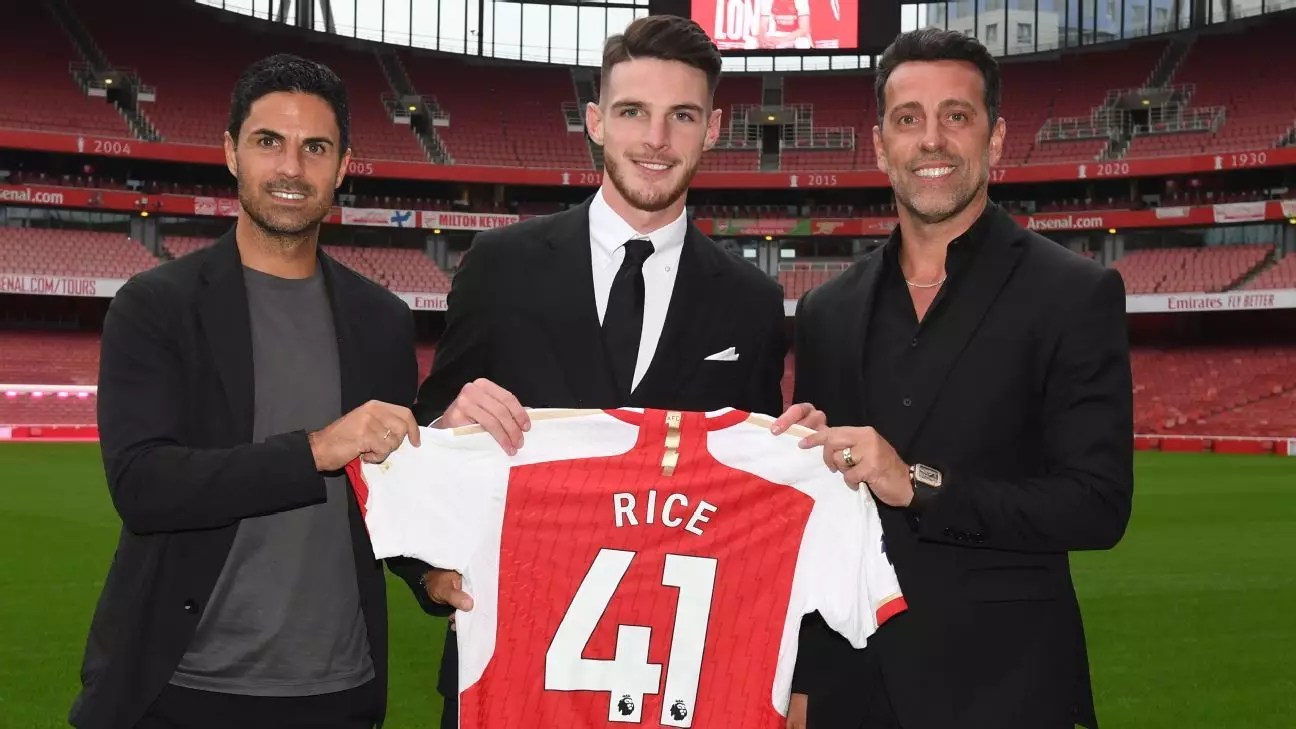The sudden resignation of Edu Gaspar, Arsenal’s sporting director, has sent ripples through the Premier League club’s infrastructure, leaving fans and analysts alike pondering the ramifications. When Mikel Arteta signed a new contract in September, he stressed the importance of his collaboration with Edu, declaring it pivotal for the club’s long-term vision. However, just two months later, Edu’s exit raises pressing questions about Arsenal’s future direction and stability. With Edu poised to oversee a multiclub model for Nottingham Forest’s owner, Evangelos Marinakis, Arsenal finds itself at a critical crossroads.
Edu’s tenure at Arsenal began in 2019, and he was instrumental in executing a complete reconstruction of the squad. Initially met with skepticism, Edu quickly turned critiques into applause as Arsenal began displaying resilience and ambition under Arteta’s leadership. His early signings were often scrutinized, particularly regarding their relationships with agents; nevertheless, he would soon forge a reputation as a key architect behind Arsenal’s resurgence as title contenders. His promotion to sporting director in November 2022 signified his growing influence and responsibility, encompassing not just transfer decisions but strategic oversight across all facets of the club.
After years of stagnation during the latter stages of Arsène Wenger’s reign, the partnership between Edu and Arteta promised a new era of ambition and improvement. They worked diligently to instill club values, aiming to eradicate a sense of mediocrity that lingered after Wenger’s departure. While discussions hinted at tensions over certain player transfers, particularly the loss of promising talents, these were soon overshadowed by the significant accomplishments they achieved together.
The announcement of Edu’s departure amid a successful restructuring phase was met with surprise. His decision followed reports of a lucrative offer that would grant him a broader role across multiple clubs, highlighting a fundamental contrast to the single-club focus he had at Arsenal. As fans and personnel digest the change, it becomes clear that Edu’s exit could alter the dynamics of club decision-making, particularly concerning transfer strategies and talent development.
Internally, the atmosphere at London Colney was one of disbelief. Edu’s sudden decision was unexpected, given his integral role in shaping the footballing landscape at Arsenal. Despite minor disagreements over transfer targets, sources strongly asserted that no larger power struggle led to his departure. Instead, Edu’s decision came with a lucrative opportunity that promised greater influence than he held with Arsenal.
As the club’s search for a successor begins, the absence of a clear succession plan amplifies the potential for instability. Successful transfers and player development are attributed not just to a solid strategy but also to the chemistry and rapport between Edu and the staff. This raises concerns about how smoothly Arsenal will navigate the recent upheaval. The club does plan to replace Edu; however, the approach will be methodical, and it is still undetermined who can fill such a multifaceted role.
In the wake of Edu’s resignation, Arsenal’s management team is already adapting. Jason Ayto, Edu’s assistant, will assume interim responsibilities, aiming to keep the club on course. Furthermore, important meetings are scheduled with ownership to outline strategies for upcoming transfer windows, allowing management continuity during this transitional phase.
Despite concerns over their future leadership, Arsenal finds itself in a relatively secure position regarding player contracts. Key figures are tied to long-term deals, alleviating immediate pressures in terms of negotiating new signings. However, an uncertain leadership structure poses challenges down the road, particularly in the ever-competitive transfer market.
Arsenal’s recent successes present a strong foundation, yet Edu’s departure underlines the urgency for the club to solidify its direction, especially with transfer windows approaching and rival clubs strengthening their squads. The upcoming January transfer window presents an immediate test: will the club remain passive, or will they seize opportunities that align with Arteta’s vision?
As the club turns a new page, it faces a genuine test of resilience. While Arteta’s mantra suggests that the passion for improvement remains “intact,” time will reveal whether Edu’s unexpected exit serves as merely a bump in the road or a pivotal moment that Arsenal will come to regret. The loss of a figurehead like Edu raises pertinent concerns, but history has shown that clubs can recover if they adapt and respond positively to change. Arsenal, having weathered challenging times in the past, now stands at a juncture that could redefine its future.


Leave a Reply